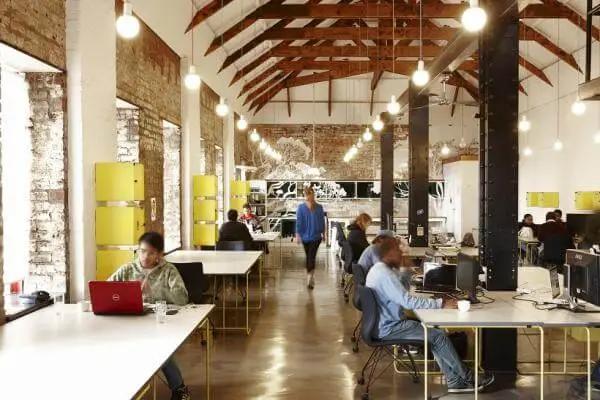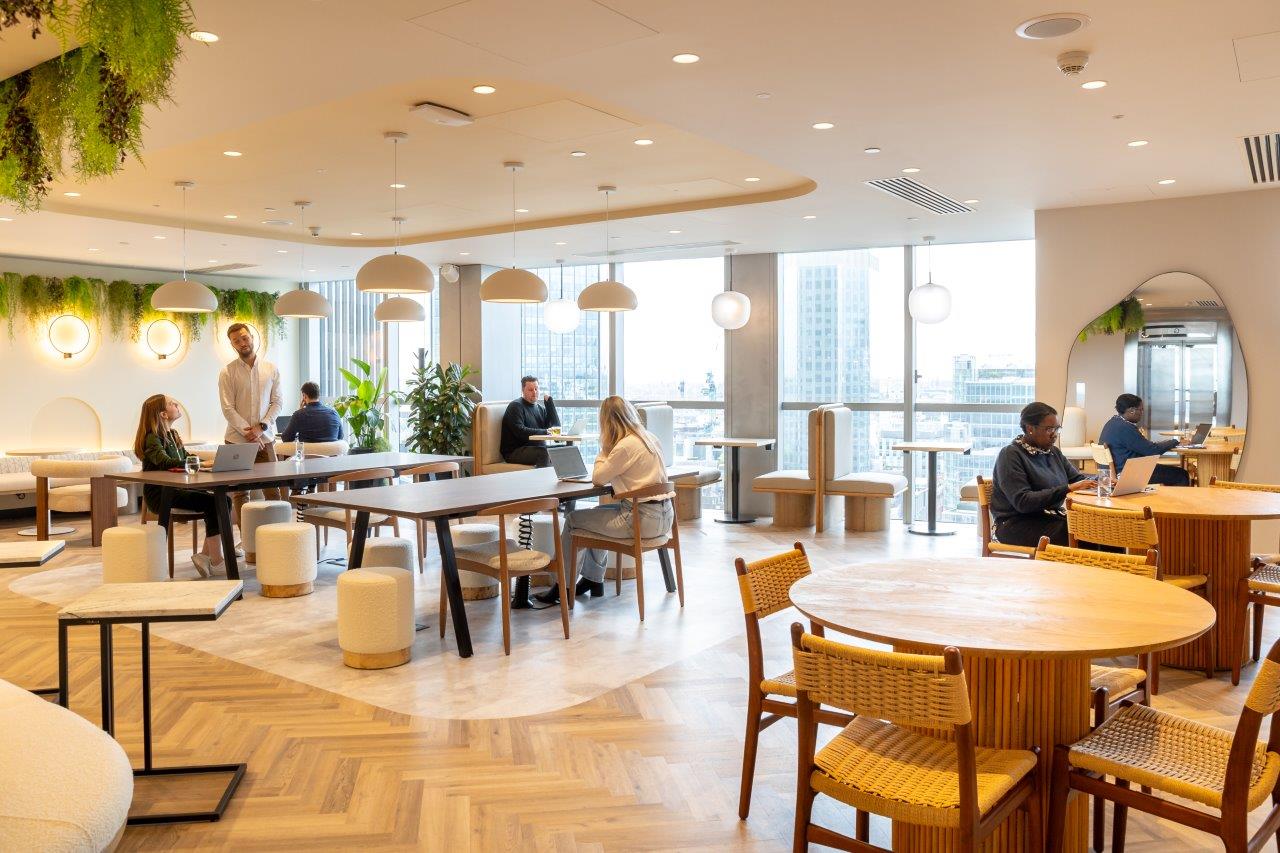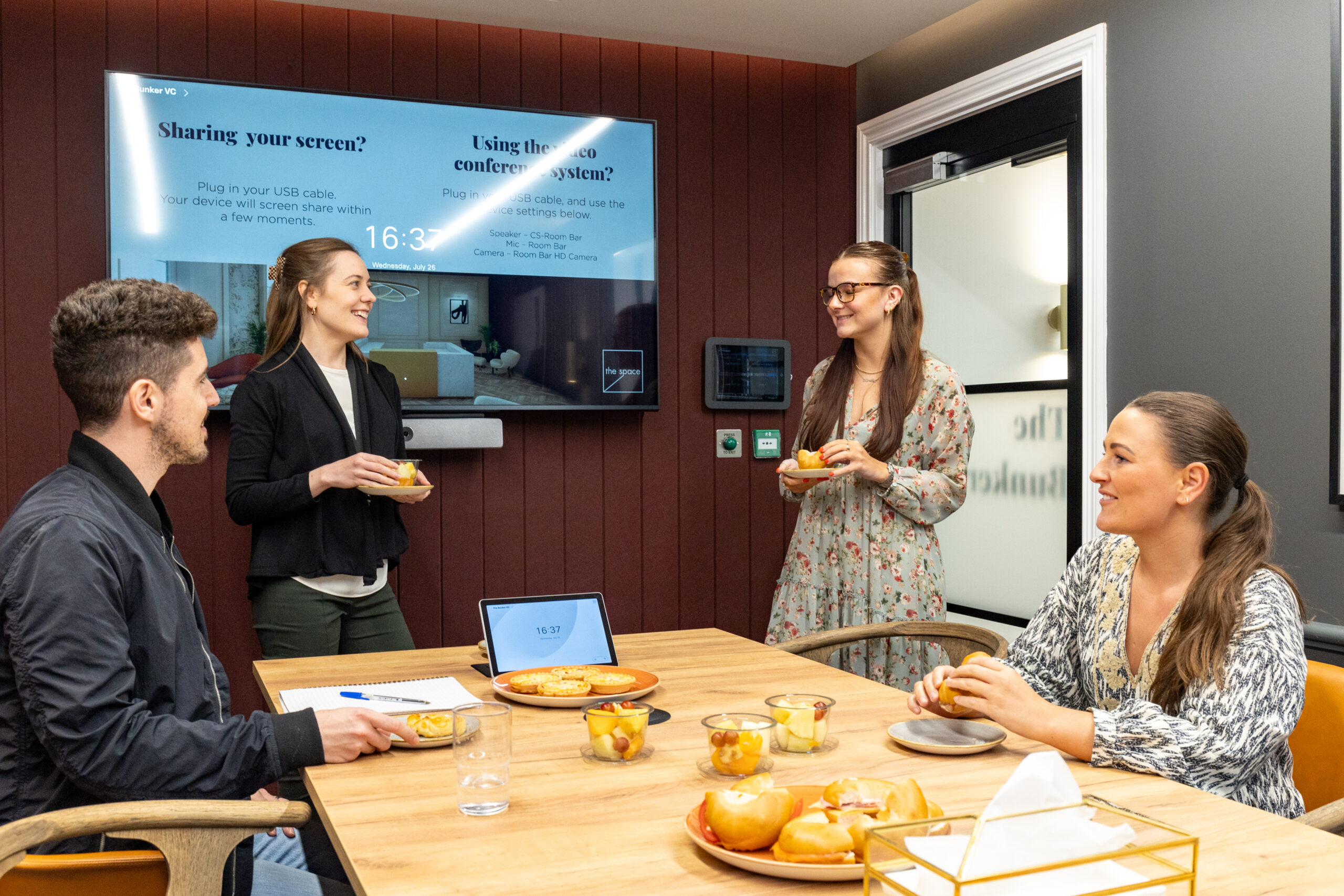Hot Desks vs Fixed Desks: Which is right for your business?
12th December 2018

Office culture has changed dramatically over the last decade, which has, in turn, had a huge impact on the way that offices are being designed. Cubicles inside offices fast became a thing of the past, with the walls coming down to make way for open plan working and hot desking.
Though the day-to-day variety provided by hot desking is beloved in some quarters, many office workers prefer to have their own fixed space to work, which allows them to customise their surroundings and arrange their area to maximise their personal productivity. Here, we’ll look at the pros and cons of hot desks and fixed desks, and try to give you the best idea of which working style is right for your business.
What is a hot desk?
Hot desking is a fairly recent evolution of office design. Instead of giving staff their own space to sit and work, hot desk offices offer a blank canvas for staff (be they full-time or freelance) to sit where they choose in order to get their work done at their own convenience.
What is a fixed desk?
Fixed desk offices are ultimately the opposite of hot desks, and are what you might call a traditional office layout. Fixed desk space means that your desk is your own, allowing you to make use of your own private storage, a computer and any other decorations you see fit to add.
Which is right for my business?
At Landmark, we provide both business lounges with ad hoc hot desk space and private offices with their own fixed desks for your staff. However, not all businesses may benefit from just one or the other, so how do you know which one is right for your business? To help you decide, we have compiled some of the most important things to take into consideration.
JUMP TO
Cost
Fixed office space involves a great deal more preemptive planning, as you will need to make sure you can accommodate not only your existing staff but any new hires you might take on as your business expands. However, this could also result in a lot of empty desks in your office, which will not only seem like a waste of space but may look decidedly unimpressive to anyone visiting your office for the first time.
By contrast, hot desking means that a business will have less need to pay for excess office space and less equipment—such as computers, furniture, and storage—to purchase for their staff. Rent costs will also likely be reduced, as you will need to use less space to accommodate staff since there are few instances at which all of your staff will be in the office at the same time.
So arguably, hot desks make the most sense if you’re looking to cut costs within your office. However, we would be remiss if we didn’t tell you that Landmark’s private offices do offer other ways to lower your company’s overheads, from in-house reception staff to facilities management and cleaning services.
Winner: Hot Desks
Equipment
Having the things you need to do your job easily available and in your own space is an effective way to ensure that you can do your tasks efficiently. You may be a designer in need of your own scanner or lightbox, or a department head who simply needs regular access to a printer. Whatever the purpose, hot desking offers no guarantee that you will have the required equipment on a daily basis, and the time and effort required to unplug and reconnect bulky electrical items can be extremely disruptive. Fixed desk offices will make sure that your staff have easy access to the gear they need to get their jobs done,
Winner: Fixed Desks
Productivity
Different employees—and, sometimes, different teams in their entirety—need different things from the way they work. Indeed, studies have shown that productivity sometimes can take a hit in an open plan office with a hot desk policy, as the collaboration can quickly become just conversation. Then again, there are just as many industries and businesses which thrive on the collaboration that hot desking brings about.
Similarly, a lot of employees fare better in the workplace when they have somewhere to keep their stuff and, by sitting down at the same desk from one day to the next, let themselves pick up where they left off the previous day. Ultimately, the decision should hinge on what is best for your staff, so discussing which working style they operate best in is the only way to come to the right conclusion where productivity is concerned.
Winner: Draw
Flexibility
Fixed desks, by their very nature, offer no room for flexibility in terms of who sits where. However, our private offices are flexible in a number of other ways, particularly when it comes to our leases, which let you extend your contract or expand your space at your convenience.
But when it comes to workspace flexibility, there’s little contest. Hot desking is ideal if yours is the sort of business which encourages and allows your staff to come and go as they please. Particularly for creative industries, hot desking helps you capitalise on your office if you have limited space, without putting it at a premium. It also means that, as your business expands, you won’t need to worry about having to cram all of your staff into an office that can’t contain everyone at once.
Winner: Hot Desks
Stability
Fixed desks are inarguably the most stable working arrangement. Everyone knows where their belongings are, and has space to themselves. Whether they simply want access to a computer with no distractions, or a desk that has been fully kitted-out with photos of loved ones and their favourite mug, giving your team members a space to call their own offers a level of stability that is simply impossible with the ever-changing hot desking landscape.
Winner: Fixed Desks
Collaboration
Hot desking was, in part, devised in order to encourage staff to sit near different colleagues as a way to bring about new collaborations, idea sharing and ways of thinking, especially across different teams within the same company. Particularly with hot desking in shared office spaces, networking is also a major benefit, and you could even wind up making casual connections with other companies.
Of course, this doesn’t really happen with fixed desk offices. Since you will be sat next to the same people on a daily basis (unless you decide to have an office reshuffle), the only real collaborating you’ll get to do will be digitally, whether via Slack, email, or during your lunch break. If you’re looking to encourage your staff to mingle, hot desks are your best option.
Winner: Hot Desks
Conflict and disruption
One of the main issues people have with hot desking is the struggle to actually find space if they arrive at the office too late. Not only does this disrupt their own workflow, but the work of those who are already in the office, especially during busy periods. There may also be some more desirable spaces within the office, such as desks nearer the window or the kitchen, and competition over these hotly-contested workspaces could pose something of a distraction.
Obviously, none of these issues arise in a fixed-desk office, with everyone having their own spot, with which they can do what they wish. Crisis averted!
Winner: Fixed Desks
Different types of working offer different benefits, so ultimately your preference will depend on what your business needs, If your staff are creatures of habit, who know what lets them get their work done most efficiently, or if members of your team make use of a lot of specialist gear to get their work done, then a classic fixed desk office might better suit your company. However, if you’re trying to keep overheads down and want to bring your team together to share ideas and encourage collaboration, then hot desking is for you.
If you still can’t decide which type of working arrangement is right your business, contact Landmark today. Our team will be more than happy to help evaluate your requirements, guaranteeing a solution that is best suited for your budget and brand.

